Illustration and Heritage: Sharing Histories to Draw Out Futures
22-23 November 2024
The Illustration Programme at Camberwell College of Arts, University of the Arts London (UAL) hosted the 14th International Illustration Research Symposium.
Programmed by Dr Rachel Emily Taylor, the symposium explored active processes of heritage-making through:
- digital, institutional and communal archives
- illustrative and co-illustrative methodologies
- the making and giving of a ‘voice’
- understanding and communicating artefacts
- looking at architecture as a historical material.
The symposium was attended by practitioners and researchers from illustration, heritage, architecture, anthropology and other fields. It considered principles including inheritance, displacement, collective memory, subjectivity and plurality. How do contemporary illustrators take part in historical narratives and give a voice to people and communities? How can they be remembered, obscured and imagined through their work?

Symposium Chair and Keynote Speakers
-

Rachel Emily Taylor - Course Leader, BA Illustration, Camberwell College of Arts
Rachel Emily Taylor
Course Leader, BA Illustration, Camberwell College of Arts.
-

Dan Hicks - Curator and Professor of Contemporary Archaeology, University of Oxford
Dan Hicks
Curator and Professor of Contemporary Archaeology, University of Oxford.
-

Yeni Kim - Illustrator and Assistant Professor, Hongik University, South Korea
Yeni Kim
Illustrator and Assistant Professor, Hongik University, South Korea.
-

Chris Lee - Graphic Designer and Assistant Professor, Pratt University, USA
Chris Lee
Graphic Designer and Assistant Professor, Pratt University, USA.
Defining Illustration and Heritage
During the symposium a variety of potentials for the roles and definitions of illustration and heritage were considered:
Illustration
Illustration is an act of illuminating, but light also casts a shadow and obscures or ignores other elements.
Illustration as a visual listener.
Illustration as an intellectual visual act.
Illustration as an attempt at empathy.
Illustration as a sympathetic process with other disciplines.
Illustration as a mode of embodied expression.
Illustration as notation.
Illustration as language.
Illustration as intervention.
Heritage, in the context of illustration
Heritage as a process.
Heritage as a story.
Heritage as fragmentary, made up of different perspectives.
Heritage as interpretation.
Heritage as authority.
Heritage as authorship.
Heritage as place.
Heritage as absence.
Publication
The symposium was curated in response to Illustration and Heritage, by Rachel Emily Taylor, published in 2024 by Bloomsbury Press.
Partners
Organised in partnership with Illustration Research, Quentin Blake Centre for Illustration, the Association of Illustrators and Illustration Educators.
Supported by Research at Camberwell, Chelsea, Wimbledon Colleges of Arts, University of the Arts London.
Photography
-
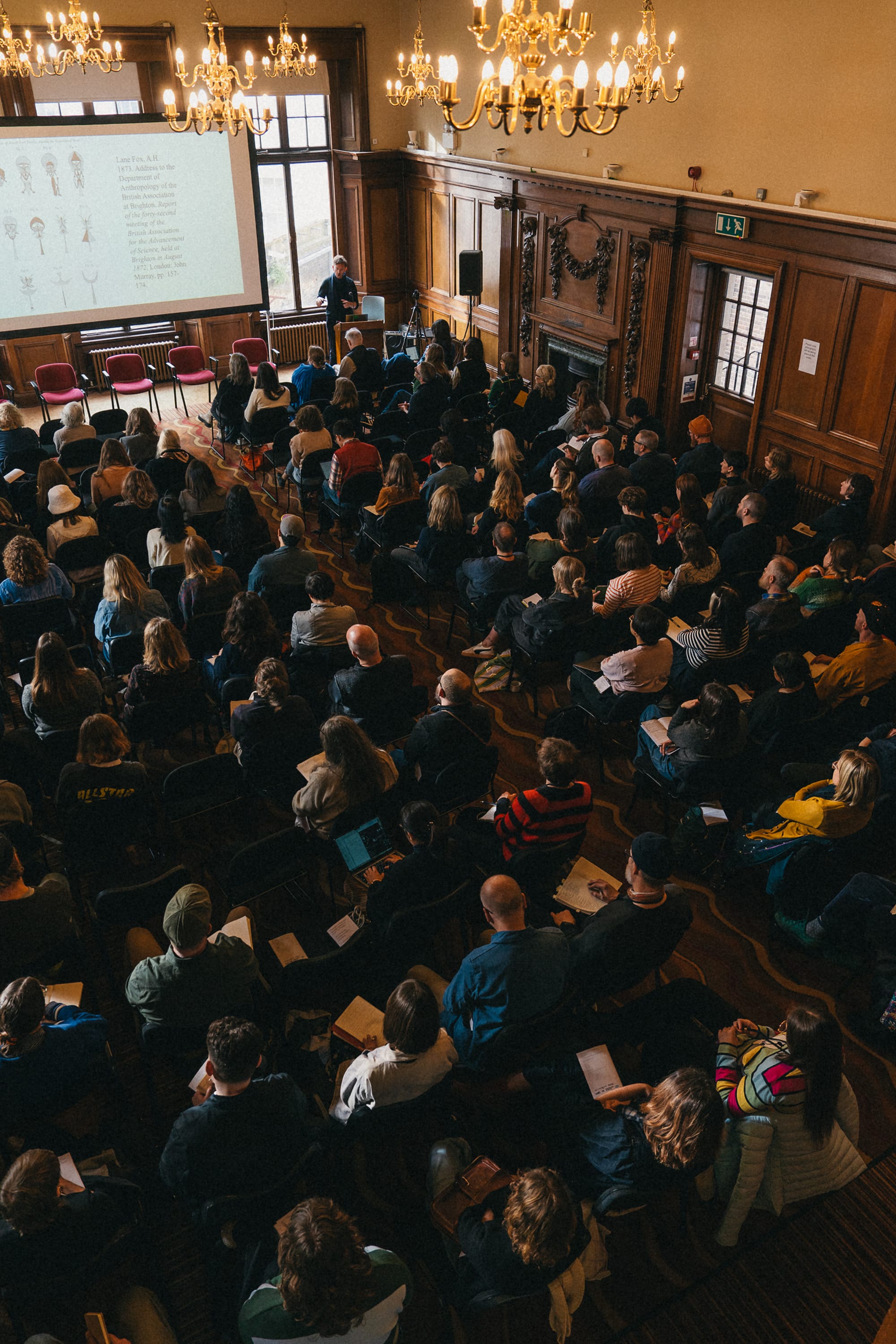
Illustration & Heritage Sharing Histories to Draw Out Futures, 14th International Illustration Research Symposium.
-
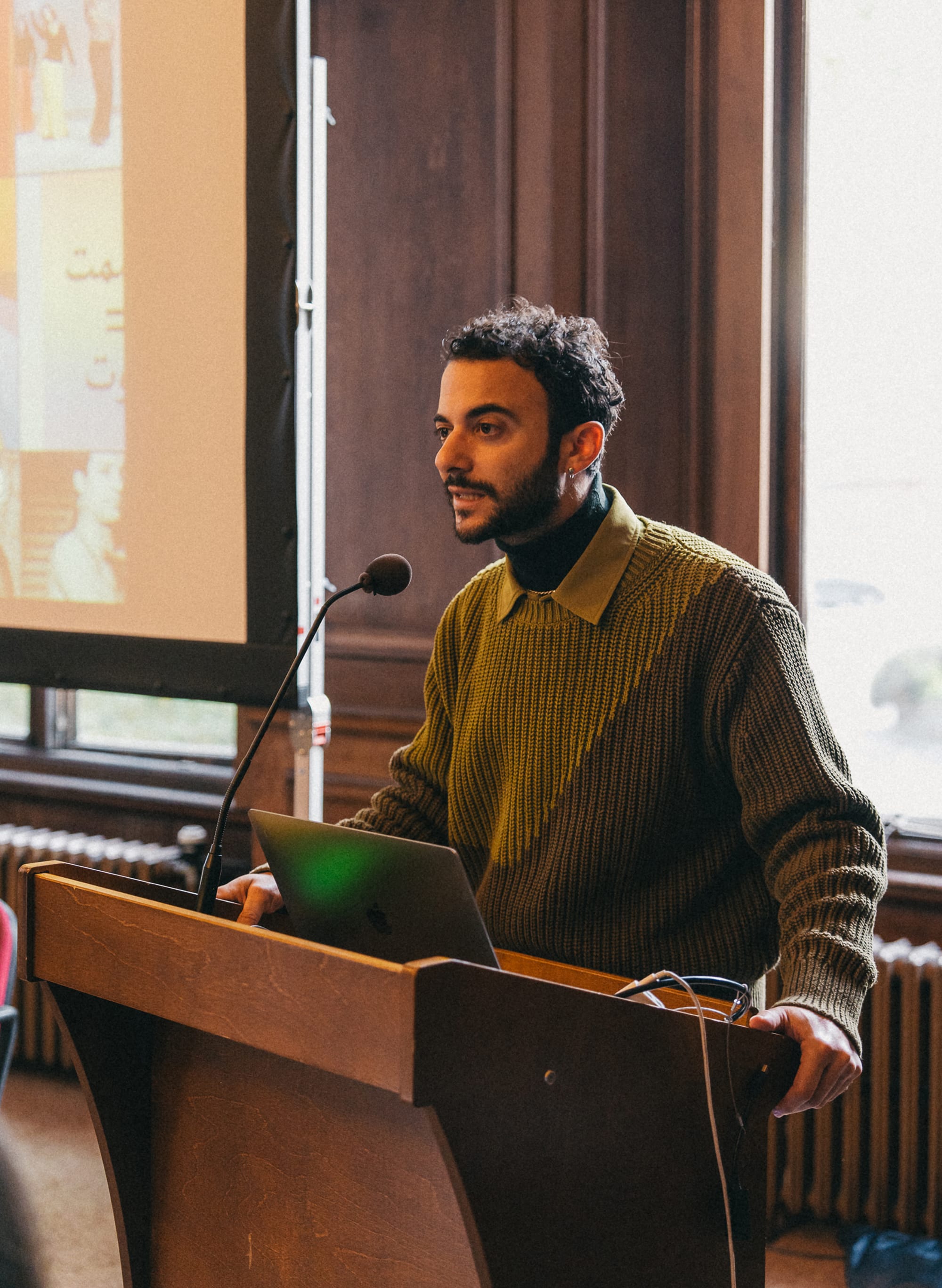
Marwan Kaabour Takweer. | Photography - Angela Tozzi
-

Rudy Loewe. | Photography - Angela Tozzi
-
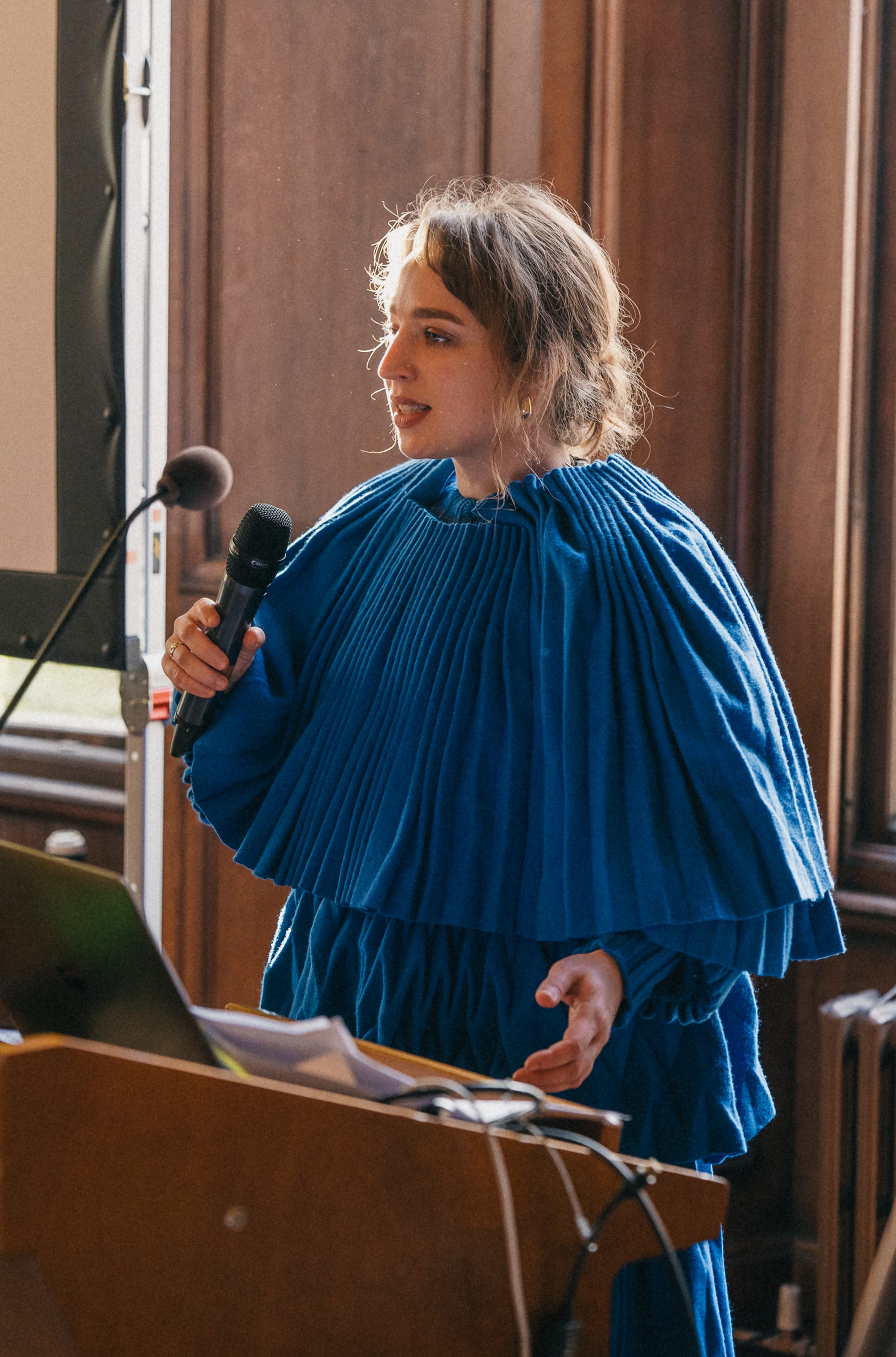
Rachel Emily Taylor. | Photography - Angela Tozzi
-
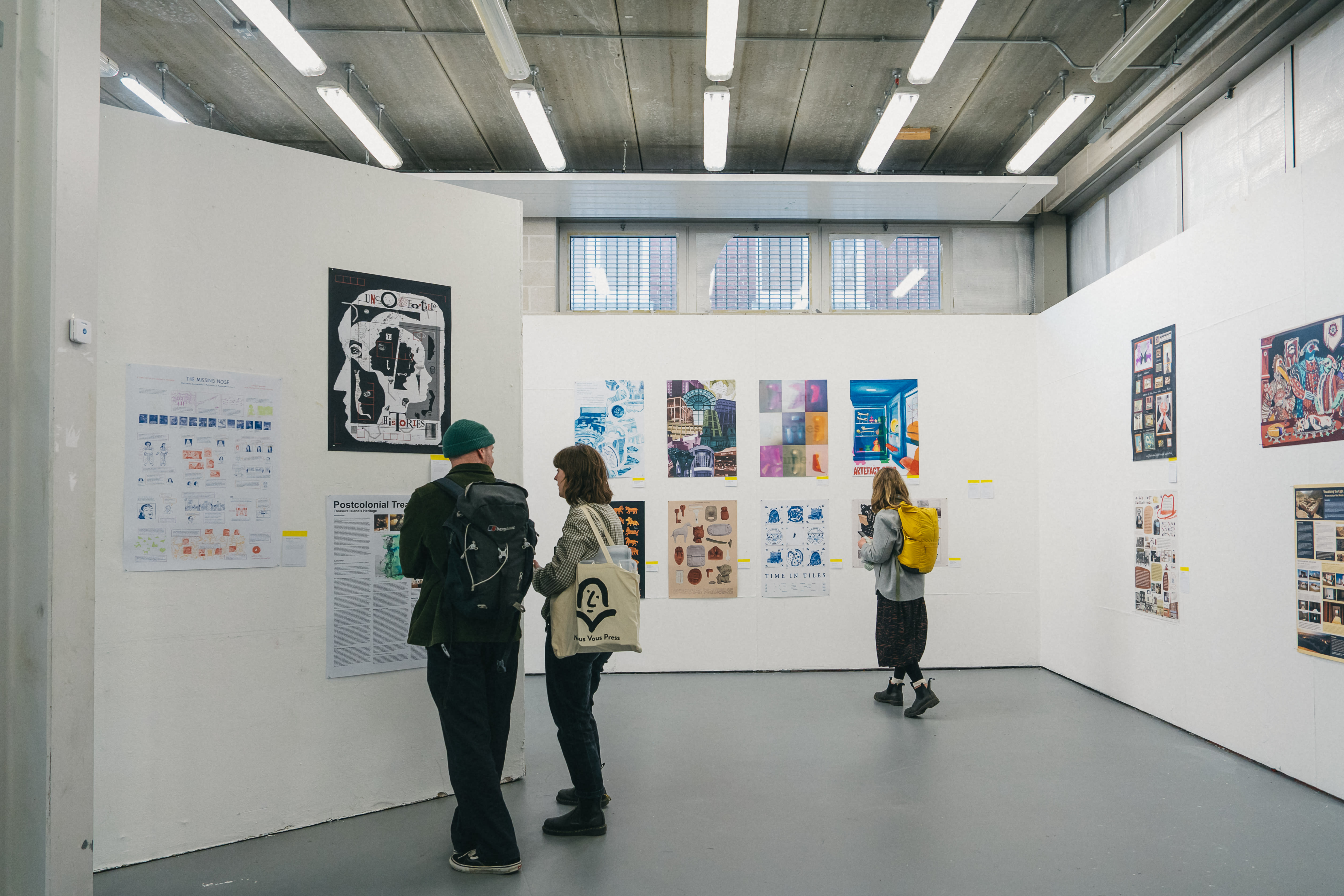
Illustration & Heritage Sharing Histories to Draw Out Futures, 14th International Illustration Research Symposium.
-
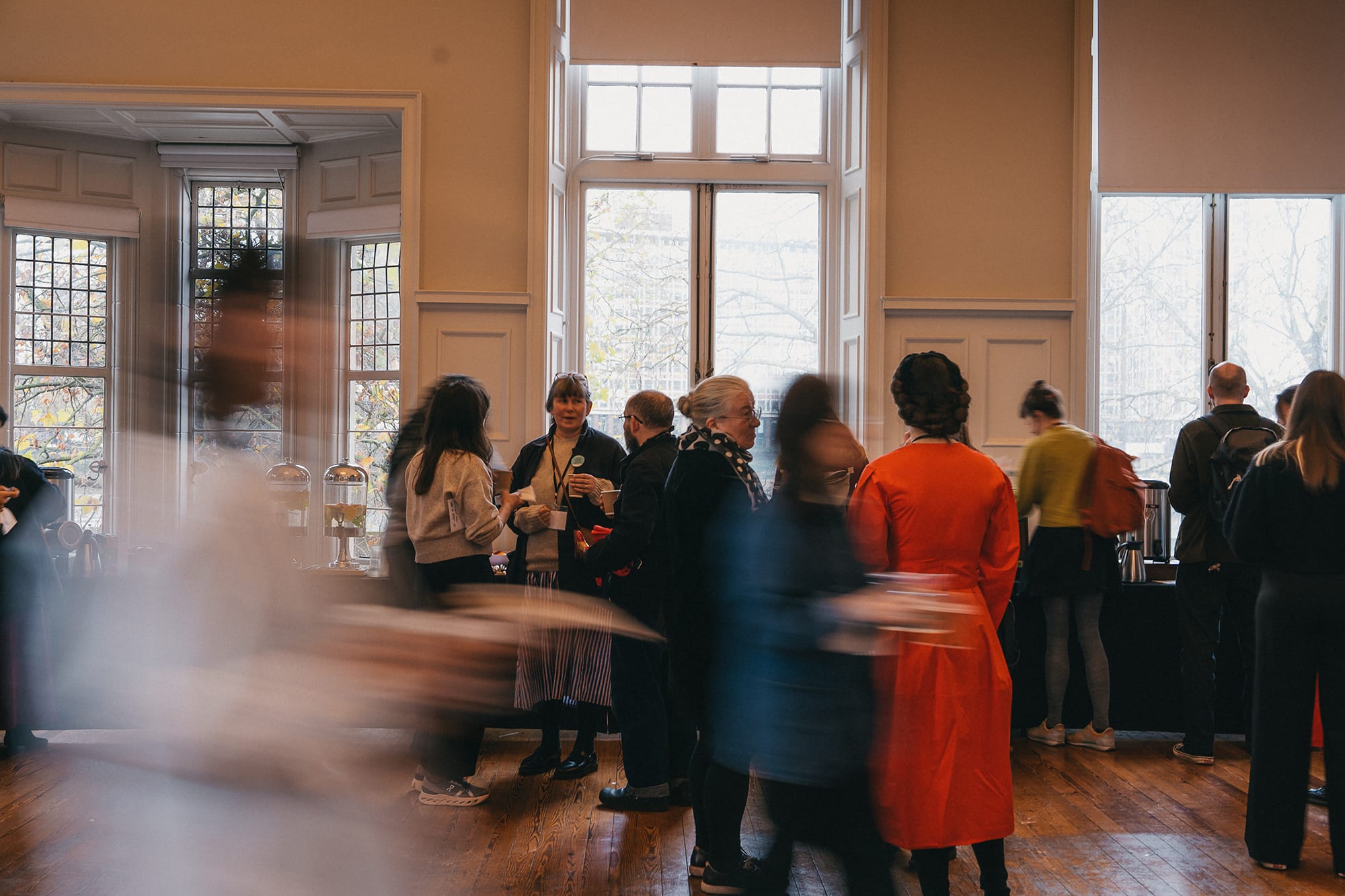
Illustration & Heritage Sharing Histories to Draw Out Futures, 14th International Illustration Research Symposium.
